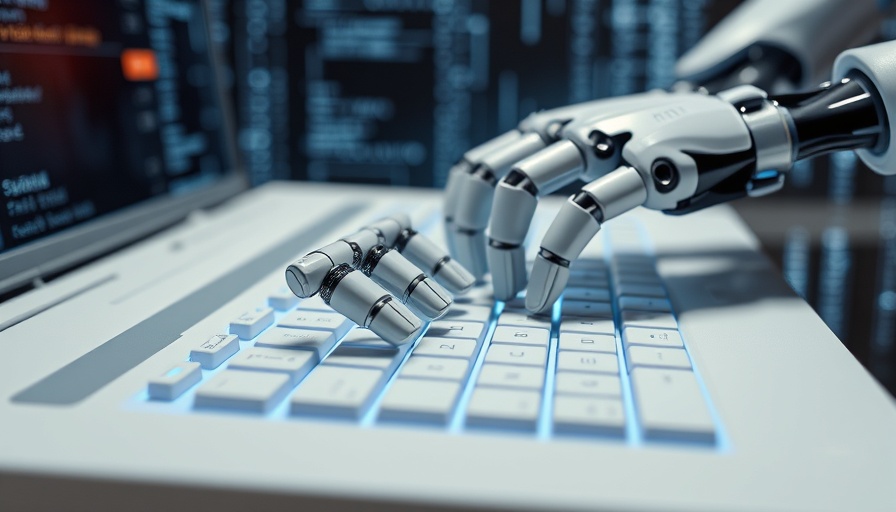
OpenAI Races to Catch Up with Anthropic in AI Coding Capabilities
As the landscape of artificial intelligence (AI) evolves, two giants—OpenAI and Anthropic—are engaged in a thrilling competition for dominance in AI coding tools. With OpenAI's recent launch of GPT-5, the stakes have never been higher, especially as Anthropic's Claude AI has often been hailed as the best coding assistant in the market. But what does this progress mean for engineers and the future of programming?
The Coding Crown: Who Wears It?
Recent insights reveal that coding abilities are driving significant revenue growth in AI, with Anthropic generating nearly $5 billion annually compared to OpenAI's $12 billion. The release of OpenAI's GPT-5 aimed to challenge Claude's supremacy by emphasizing coding capabilities and adaptability. Notably, GPT-5 combines large language model (LLM) technology with advanced reasoning skills, improving its overall performance and user interaction experience.
How Does GPT-5 Stack Up Against Claude?
OpenAI's strategy with GPT-5 focuses on seamless usability for developers, specifically integrating features designed to facilitate collaborative coding experiences. Meanwhile, Anthropic's Claude Code aims to integrate directly into programming environments, appealing to software engineers who prefer a tool that streamlines their development process. While Claude is perceived as slightly ahead in terms of coding efficiency, user experiences vary significantly—some find Claude superior for front-end tasks, while others prefer OpenAI’s Codex for back-end functions.
Future Predictions: What Lies Ahead for AI Coding Tools?
Looking ahead, AI coding tools are poised to revolutionize the tech industry. GPT-5 is expected to draw more developers to OpenAI's platform, especially due to its improved features that allow real-time software creation and seamless integration with GitHub. However, there are concerns regarding what widespread adoption of these tools means for job security among engineers, particularly in entry-level positions.
The Emotional Impact on Engineers: Navigating Job Security in an AI-Dominated Era
As companies increasingly adopt AI coding assistants, engineers may feel anxious about their job security, leading to a shift in the employment landscape. Anthropic's CEO has predicted that up to 50% of entry-level jobs could be automated by 2030, stirring fears among new graduates entering the workforce. While AI can enhance efficiency, it raises legitimate questions about the future roles of human engineers and the value of creative problem-solving that machines cannot replicate.
Actionable Insights: Embracing AI Tools Effectively
For engineers navigating this rapidly changing environment, understanding how to utilize AI coding tools effectively is crucial. Embracing tools like Codex or Claude can lead to significantly increased productivity; however, it's equally important for engineers to continue developing their unique skills, particularly in areas where AI currently falls short, such as conceptualizing complex project ideas or addressing unexpected challenges creatively. Those who can merge technical expertise with a strong command of AI tools will likely thrive in this evolving landscape.
Conclusion: The Future of AI in Programming
In summary, the rivalry between OpenAI and Anthropic highlights the critical advancements and emerging tools within the AI coding space. For software engineers, adapting to these changes could present unique opportunities for collaboration and innovation. As OpenAI and Anthropic push the boundaries of AI capabilities, it’s clear that the world of programming will never be the same. To keep pace, engineers should focus on continuous learning and leveraging AI tools to unlock new potentials in their work.
 Add Row
Add Row  Add
Add 




Write A Comment